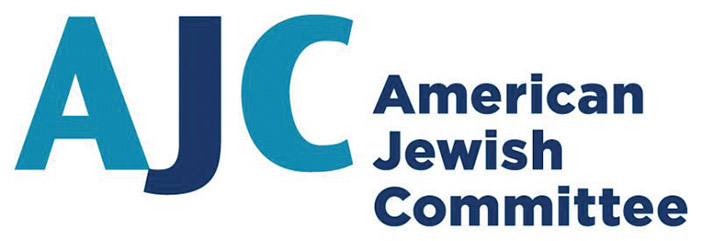
Part VIII
Although American Jews were clearly divided on how to organize relief activities, they agreed that America should remain neutral. The majority of the American Jewish community was in the vanguard of those opposing American involvement in the war. In an editorial in the Der Tog, Samuel Margoshes observed that many American Jews who had come from Europe knew from personal experience what war does to a country, and hoped and prayed that American youth would be “spared this horrible experience.”
The American Jewish Committee, B’nai B’rith and the Workman’s Circle shared these sentiments and warned of the futility of war. The Workman’s Circle believed it imperative America remain out of the conflict, “because at least in one great and powerful land, the lamps of civilization must not be extinguished.”
In “Against Immediate Evil: American Internationalists and the Four Freedoms,” historian Andrew Johnstone found that in October 1939, 62 percent of Americans were eager to assist Britain and France in every way conceivable to win the war, except participate in the war. When the question was rephrased to include the risk of war, 66 percent were not prepared to support Britain and France if this involved risk of America entering the war in Europe.
Though American Jewry counselled a non-combative role for America, they were not neutral about the final outcome of the war. Associate Supreme Court Justice Felix Frankfurter spoke for “the vast majority of Jews” when he asked: “How can we be neutral on an issue like the one involved in the present war, unless we close our minds to the cardinal, basic doctrines of our civilization?”
Short of participating in the war, Margoshes wanted to “render every possible assistance to the enemies of Hitler, for the enemies of our enemy are our friends.” Repealing the Neutrality Act of 1935, which forbade the US to export any arms to belligerents—both aggressor and victims—became a mission of a number of Jewish newspapers. By informing their readers about the nature of the revisions, they hoped to allay concerns that this might plunge America into war, and marshal Jewish support behind the president. Many Jews were extremely sensitive about charges of being warmongers and were cautious about supporting such proposals.
Neutrality Act of August 31, 1935
The Congress had passed the Neutrality Act and President Franklin D. Roosevelt signed it into law on August 31, 1935. On October 27, 1939, the Senate voted to modify the Act by deleting the embargo on belligerents, noted Ted Morgan in “FDR: A Biography.” A few days later, the House passed the bill, which President Roosevelt signed into law on November 4, 1939.
Among the groups backing repeal of the embargo, was the Non-Partisan Committee for Revision of the Neutrality Law, as were a number of leading religious leaders. In a joint statement signed by 30 Catholic, Protestant and Jewish leaders, they declared their support for revision was solely because: “We believe its safeguards are not only calculated to keep us out of war but will throw the vast moral and material weight of this country on the side of liberty….” Among the Jewish leaders who signed were Dr. Cyrus Adler, president of the Jewish Theological Seminary of America and the American Jewish Committee; Dr. Edward L. Israel, rabbi of Har Sinai Congregation of Baltimore; Dr. Morris S. Lazaron, rabbi of Baltimore Hebrew Congregation; and Rabbi Stephen S. Wise.
American Jewry’s intense apprehension of being labelled war hawks was justified. Naomi Cohen pointed out that Joseph P. Kennedy, the US ambassador to the Court of St. James, warned a prominent British Jew that “there are still people of sense who at the back of their minds had the idea that the Jews would like Germany to be punished by defeat in the war.” Kennedy added: “I tell you on the authority of no less a person than Franklin Delano Roosevelt that if the United States is dragged into war with Germany there might even be a pogrom in the U.S.A. itself.”
Cohen added that American Jews had not forgotten that Henry Ford, the founder of the Ford Motor Company, had accused them of being the cause of World War I or the references made about the house of Rothschild being the symbol of avaricious bankers who plotted conflict for financial gain. As the hostilities in Europe increased, accusations that Jews were the instigators of wars for profit became more frequent.
To counter the anti-Semitism, the AJC initiated a “prodemocracy” campaign to demonstrate the differences between democratic institutions and the Fascist Nazi and Italian governments. Anti-Semitism had to be seen as part of a fundamental threat to the American way of life that Americans were fighting for, “the defense of civilization against totalitarianism, democracy against dictatorship.”
By Alex Grobman, PhD
Alex Grobman, a Hebrew University-trained historian, has written three new books on Israel: “BDS: The Movement to Destroy Israel,” “Erosion: Undermining Israel Through Lies and Deception” and “Cultivating Canaan: Who Owns the Holy Land?” He also wrote “Nations United: How the UN Undermines Israel and the West.” He is a consultant to the America-Israel Friendship League, a member of the Council of Scholars for Scholars for Peace in the Middle East (SPME) and a member of the Academic Council of The David S. Wyman
Institute for Holocaust Studies.










